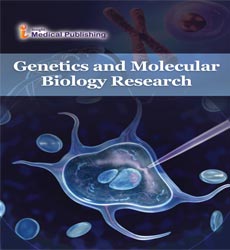Sequencing of a 306 bp Region of the ANXA11 Gene Containing thers1049550 Polymorphism for Sarcoidosis Susceptibility in Turkish Patients
Abstract
Sarcoidosis is a multisystem immune disorder with unknown etiology. The disease is characterized by the spread of noncaseating epithelioid granulomas. Recent data from Genome Wide Association Studies (GWAS) have identified annex in A11 (ANXA11) as a new Sarcoidosis susceptibility gene. These studies further indicated a strong association of a single nucleotide polymorphism with Sarcoidosis. Our aim was to determine whether the rs1049550 is associated with Sarcoidosis in Turkish patients and to scan a 306 bp region of ANXA11 for other variations associated with Sarcoidosis. Genomic DNA was isolated from the leukocytes of 53 Sarcoidosis patients and 52 controls. A 306 bp region of ANXA11 encompassing rs was amplified by PCR, and the amp icons were sequenced using the Sanger method. The sequence data of both patients and controls were analyzed using the BLAST database to identify variations. The allele and genotype frequencies of the groups were analyzed using the chisquare test. The rs1049550 polymorphism was the only genetic variation observed in the 306 bp region. There was no statistically difference when the frequencies of the CC, CT and TT genotypes in the Sarcoidosis group (were compared with the corresponding genotypes in the control group respectively). Furthermore, the allele frequencies for the rs1049550 polymorphism were not significantly different (when comparing the Sarcoidosis patients (C=73.6%, T=26.4%) with the controls Our results suggest that the ANXA11 rs1049550 polymorphism is not a genetic predisposition marker for Turkish patients with Sarcoidosis.
Open Access Journals
- Aquaculture & Veterinary Science
- Chemistry & Chemical Sciences
- Clinical Sciences
- Engineering
- General Science
- Genetics & Molecular Biology
- Health Care & Nursing
- Immunology & Microbiology
- Materials Science
- Mathematics & Physics
- Medical Sciences
- Neurology & Psychiatry
- Oncology & Cancer Science
- Pharmaceutical Sciences
